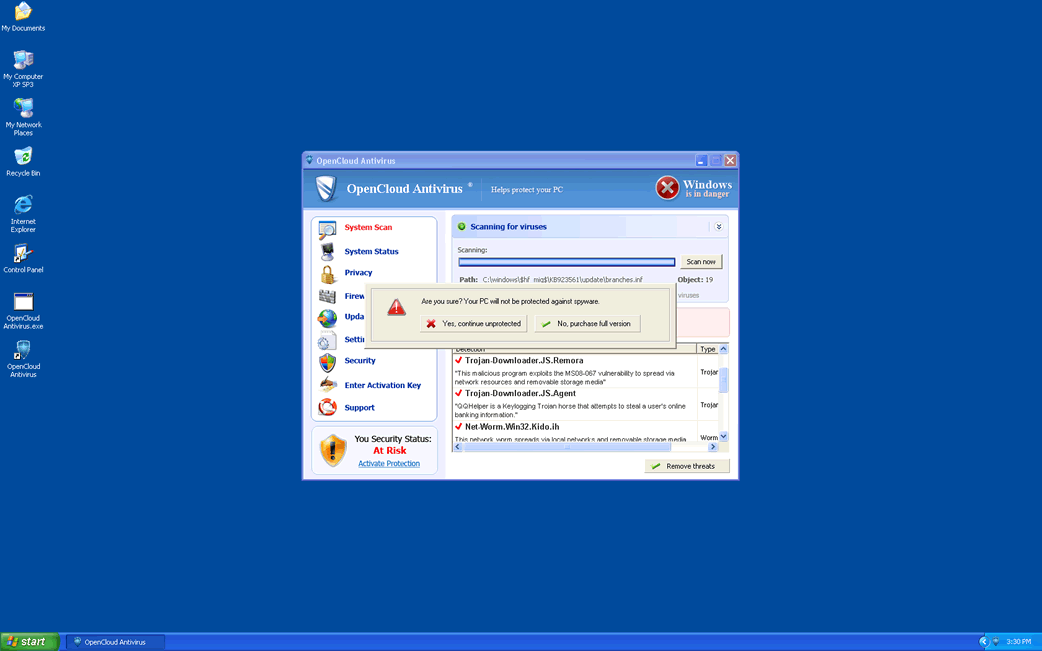Awayurl.net
Awayurl.net is identified as a deceptive search engine URL. This specific website is associated with the TraceUrl rogue browser extension, a discovery made by information security researchers while examining misleading online platforms. Despite its advertised purpose of redirecting users to legitimate websites, TraceUrl functions differently in practice. Beyond its redirect capabilities, the extension also gathers sensitive user data.
Table of Contents
Awayurl.net Is Promoted via Rogue and Intrusive Browser Extension
The TraceUrl extension promotes the use of the awayurl.net fake search engine, a tactic commonly associated with browser hijackers. Traditionally, software falling into this category alters browser configurations to enforce redirects toward specific promoted websites. For instance, users may find themselves redirected to a dubious search engine when initiating Web searches through the URL bar or upon opening new browser tabs or windows.
Interestingly, the TraceUrl extension diverges from this pattern by refraining from modifying browser settings. Instead, it directs users to awayurl.net when they attempt to visit an unavailable website, such as encountering a 404 error page or a 502 bad gateway error.
At first glance, this behavior appears aligned with TraceUrl's advertised functionality. However, when users input a search query into awayurl.net, they are redirected to the legitimate Bing search engine, rendering the initial redirection somewhat redundant. It's worth noting that the final landing page after redirection from awayurl.net can vary and be influenced by factors like user geolocation.
Moreover, TraceUrl possesses data-tracking capabilities typical of rogue extensions. These extensions commonly target and harvest browsing and search histories, browser cookies, usernames, passwords, personally identifiable information, financial details, and more. The collected data may be sold to third parties or exploited for financial gain.
Users Rarely Install PUPs (Potentially Unwanted Programs) and Rogue Extensions Knowingly
Users rarely intentionally install PUPs and rogue extensions due to the questionable distribution techniques employed by these software entities.
- Bundling with Freeware: One of the most common methods used to distribute PUPs and rogue extensions is through software bundling. These unwanted programs are packaged with legitimate freeware or shareware that users intentionally download. During the installation process, users may overlook or rush through the prompts, leading them to install additional programs bundled with the desired software inadvertently.
- Misleading Advertising: Some PUPs and rogue extensions are promoted through misleading advertisements or pop-ups that trick users into believing they are installing something else entirely, such as a system update, security tool, or useful browser enhancement. Unsuspecting users may click on these deceptive ads and unknowingly initiate the download and installation of unwanted software.
- Fake Download Buttons: On certain websites, especially those hosting pirated content or offering free downloads, users may encounter fake download buttons designed to mimic legitimate download links. Clicking these buttons often triggers the download of PUPs or rogue extensions instead of the intended content.
- Social Engineering Tactics: Some PUPs and rogue extensions use social engineering tactics to persuade users to install them. This can include fake alerts claiming the user's system is infected and urging them to download a supposed antivirus tool or other security software that is not safe.
- Hijacked Installers: In more aggressive cases, cybercriminals may compromise legitimate software installers by injecting PUPs or rogue extensions into them without the knowledge of the software developer or distributor. Users who download these compromised installers end up unintentionally installing the additional unwanted software.
- Lack of Clear Consent: Many PUPs and rogue extensions do not clearly disclose their functionalities or the extent of data collection they perform during installation. Users may consent to the installation of these programs without fully understanding their implications or realizing that they are installing unwanted software.
Overall, the distribution methods employed by PUPs and rogue extensions exploit user trust, lack of awareness, and deceptive practices to infiltrate systems without explicit user consent or knowledge. Users inadvertently install these unwanted programs due to the manipulative tactics employed by their distributors.
URLs
Awayurl.net may call the following URLs:
| awayurl.net |

